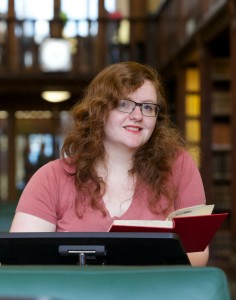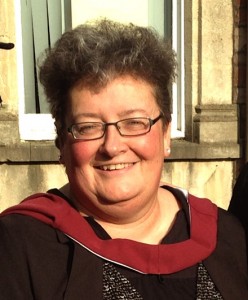 Rhiannon Easterbrook is a second-year PhD candidate in the Department of Classics and Ancient History. Having gained degrees from Cambridge and UCL, she took a few years out to work but is delighted to be back in academia. Her work is on classical reception in performance and performativity in Britain, 1895-1914. She is interested in how the Edwardians used ideas from the ancient world to think about embodiment, gender, and sexuality.
Rhiannon Easterbrook is a second-year PhD candidate in the Department of Classics and Ancient History. Having gained degrees from Cambridge and UCL, she took a few years out to work but is delighted to be back in academia. Her work is on classical reception in performance and performativity in Britain, 1895-1914. She is interested in how the Edwardians used ideas from the ancient world to think about embodiment, gender, and sexuality.
I read Not for Profit: Why Democracy Needs the Humanities by Martha Nussbaum back in 2011. At the time, we were looking towards the increase in tuition fees to £9000 and the drastic cuts to teaching grants for arts and humanities degrees. While I didn’t agree with every word in the book, Nussbaum’s impassioned argument in defence of the humanities as a vital component in the education of democratic citizens inspired me. It can come as no surprise that, as a Classics student, I have a long-held belief in the benefit of humanities degrees: as an undergrad, I was challenged to develop my analytical skills to be as rigorous as possible, exposed to different ways of experiencing and understanding the world, and driven to re-evaluate what it means to be human. As far as I can see, all three of these outcomes have a political implication: how do we process the information about policies and politicians presented to us? In a heterogeneous group, what kinds of differing perspectives must we accommodate? If we are entitled to certain rights based on being members of humanity, then what does that say about being human and who gets to decide? It was unquestionable to me that studying a humanities degree was not just personal choice but a deeply political one.
But, if studying for a humanities degree is a political choice, then why have I spent so much of my PhD so far feeling like I was failing as a political animal? When climate change is an ever-present threat, conflict rages across the world and hundreds of thousands of people are using food banks in this country, studying for an advanced research degree about some classical-ish plays put on a century ago can feel at times like an indulgence and that I should somehow be going out and helping change the world. Plus, having to juggle so many different commitments in order to stay afloat and work towards my intended career requires a great deal of attention. (I’m aware I’ve complained about this on the blog before). Staying focused on research and worrying about income are not necessarily conducive to staying politically active and tuned in. It also doesn’t help that the classic imposter syndrome – the plague of so many PhD students – has come along and infected this part of my life too, leaving me feeling that there is always someone else better qualified and informed to talk about the issues of the day.
Yet at the same time, I have been much more conscious of how my work as a scholar reflects my political and social interests. Feminism has been extremely important to me since my teens. In the last few years, I have begun the process of reassessing my stance on several issues and have developed an interest in intersectional feminism. This has led to the conscious incorporation of intersectional feminist analysis in my research. Now this has come full circle and I am ploughing what I learned in theory back into practice. Along with a group of excellent colleagues, I am working towards establishing a society for women Classicists. An awareness of intersecting oppressions has meant that we advocated establishing positions on the committee for other minorities: people who experience oppression as women, whether they’re disabled, LGBTQIA or BME, all deserve attention paid to their specific experiences and we all need to develop our understanding of where we may be a bit more privileged.
While this only a small step in a society which is riven with so many inequalities, I hope that I can begin to do my bit. Part of this is about reaching out and keeping discussions going. I am honoured to know so many thoughtful, insightful people – including a considerable number of brilliant women who offer mutual support and advice – people whom I would never have met had I not started my PhD. Whether I’m marching with them at Reclaim the Night or chatting about our theses in the pub, this community inspires me to be a better person and a better researcher.
As the future of the Human Rights Act looks uncertain questions of what it means to be human may gain more attention. But as I think again about the humanities and their role in this discussion, it is now clear to me that it’s not just why we do the humanities that’s important, it’s how we do them. It’s about re-evaluating our own subject-positions and how they influence our research, remembering that there is no neutral position. It’s about the voices we privilege and the voices we sideline. How often is it acceptable to have all-male panels, for example? Do we make our work and teaching accessible? We all have to live and right now, I have chosen to live as a researcher. However, that does not mean that I’m isolated from what happens outside the Graduate School. I’m beginning to see more and more how, while academia might feel like part of a strange bubble, it’s really part of a much wider community, capable of reproducing social problems and able to speak in dialogue with different parts of society, like any other sector. It could well be that very few people will ever read my thesis but I know that I can take what I learned me as I go through the world.


